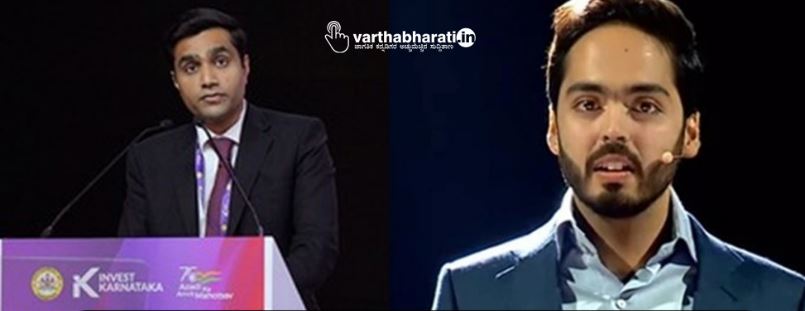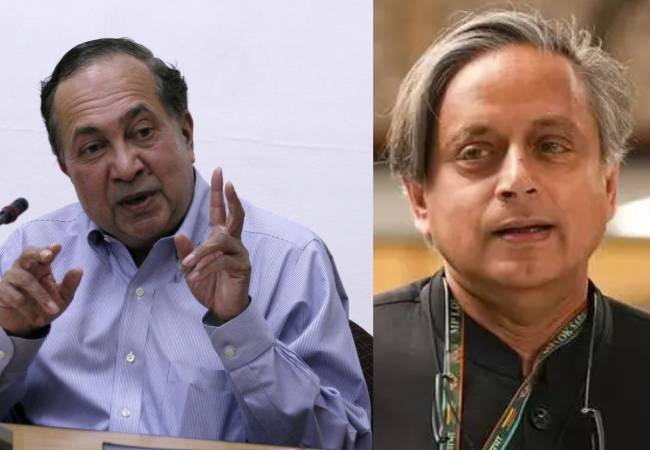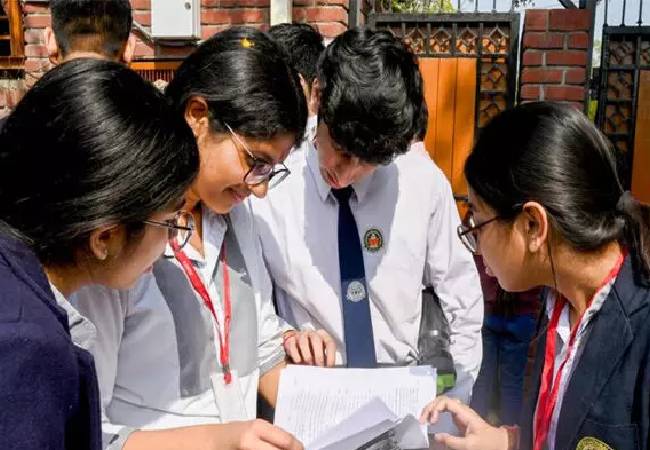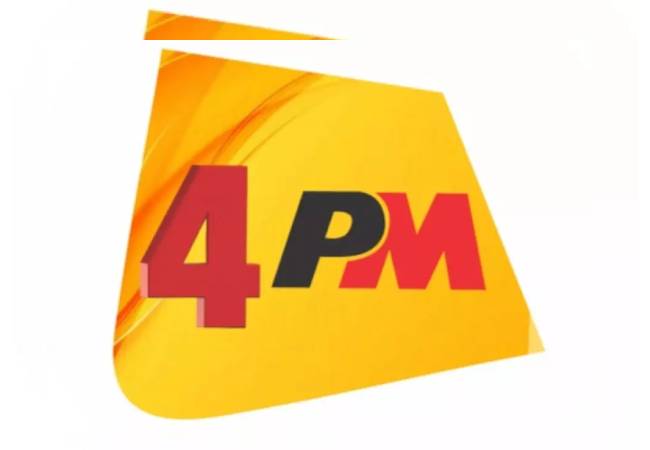Mumbai, Feb 6: Tata Sons chairman N Chandrasekharan will head the Maharashtra state Economic Advisory Council (EAC) which also includes Karan Adani and Anant Ambani, a government resolution said on Monday.
Karan Adani, the CEO of Adani Ports and SEZ Ltd, is the son of Gautam Adani, who is battling allegations of stock manipulation and fraud in Adani Group raised by Hindenburg Research. The Adani Group has denied the allegations, which created a political firestorm and eroded his networth.
The Adani junior has been named as the expert on the ports and SEZ sector in the 21-member body.
The name of Anant Ambani, the youngest son of Reliance Industries chairman Mukesh Ambani, appears next to the "diversified" sector in the list of the EAC members. Anant is the Executive Director of Reliance Industries.
"An Economic Advisory Council as an Independent Body to advise the state government on economic and other related issues ," the government resolution said.
The council has domain experts from fields including textiles, pharma, ports, special economic zone, banking, agriculture, industries, engineering, and manufacturing.
The EAC will advise the state government on any financial or other policy matter referred to it, address issues of macroeconomic importance and present the council's views to the government.
Reacting to the GR, Leader of Opposition in Maharashtra Legislative Council Ambadas Danve, who belongs to the Uddhav Thackeray faction of Shiv Sena, has sarcastically said the state government should hand over the reins of power to Adani and others.
The 21-member panel comprises a chairman, three full-time members (who are top officials of the state government), and 17 part-time members.
Sanjiv Mehta, Chairman and Managing Director of Hindustan Unilever Ltd; SN Subramanyam, Chief Executive Officer & Managing Director, Larsen & Toubro; Milind Kamble Chairman, Dalit Indian Chamber of Commerce and Industry; Ajit Ranade Vice Chancellor, Gokhale Institute Of Politics & Economics are part of the council.
Senior bureaucrats O P Gupta Additional Chief Secretary, Finance Department, Harshdeep Kamble Principal Secretary, Industries Department, and Rajgopal Devara, Additional Chief Secretary, Planning Department, are also part of the panel.
The notification said the role of the state of Maharashtra is crucial in the fulfillment of the objective to make India a USD 5 trillion economy.
Accordingly, the goal of Maharashtra to become an economy of USD 1 trillion is intrinsically linked with the national goal and the collaboration of private and public sectors will help to achieve it.
To study and determine parameters of key indicators in all sectors, as well as formulate strategies for growth in these sectors aligned with the objective of a "USD 1 trillion economy", involves extensive and in-depth consultation with various stakeholders in the state, the GR said stating the objective behind setting up the EAC.
The EAC will suggest measures for achieving the Sustainable Development Goals (SDGs) and determine parameters for important indicators in all sectors as well as to formulate strategies for growth in these sectors linked to the objective of USD 1 trillion.
It will also submit the five-year plan document to the state government in accordance with the above mentioned matters.
Meanwhile, Ambadas Danve slammed the government in a tweet.
"Instead of running the government for Ashar and Adani why don't you hand over this state government to them (sic)," he tweeted along with a page of the GR with the name of Karan Adani encircled.
"The inclusion of Adani Group's Karan Adani in the Economic Advisor Council shows for whom the government is working. But this will not work in Maharashtra," he added.
Let the Truth be known. If you read VB and like VB, please be a VB Supporter and Help us deliver the Truth to one and all.
New Delhi:
In a recent post on X (formerly Twitter), N Ram, the Director of The Hindu Publishing Group and former Editor-in-Chief of The Hindu, took aim at Congress MP Shashi Tharoor for his comments defending the BJP-led government’s handling of the India-Pakistan ceasefire and the role played by the United States in mediating peace between the two countries. N Ram, a veteran journalist known for his insightful commentary on political issues, criticized Tharoor’s statements made during an interview with Karan Thapar on The Wire, accusing him of acting as an apologist for the government. He raised concerns about Tharoor’s alignment with the ruling party’s narrative, particularly when the Congress Party itself is questioning the government’s actions.
In his tweet, N Ram remarked, "Watch Shashi Tharoor, grilled by Karan Thapar, emerge as the principal spokesman of, and the leading apologist for, the BJP government with respect to what might have led to the ceasefire between India and Pakistan and what the Trump administration’s role might have been in this regard. At a time when Congress leaders and elected representatives are asking questions and demanding answers from the Government, Tharoor’s smug assertions and ‘educated guesses’ seem calculated to make his party squirm. Are we missing something political here?"
N Ram's post highlights the growing divide within the Congress Party, where Tharoor’s comments seem to contradict the party’s stance on national security and diplomatic matters. The political establishment has been particularly vocal in its calls for the government to explain its role in the sudden ceasefire between India and Pakistan, especially regarding its interactions with the United States.
During his appearance on The Wire, Tharoor made a series of comments that appeared to support the government’s handling of the India-Pakistan ceasefire, despite the controversy surrounding it. In a conversation with Karan Thapar, Tharoor emphasized the role of the United States under President Donald Trump in facilitating diplomatic talks between India and Pakistan.
Tharoor began by explaining that while India and Pakistan have a long history of hostility, the sudden ceasefire could have been influenced by several factors, including diplomatic efforts by global powers. According to Tharoor, the Trump administration’s “shuttle diplomacy” was aimed at creating a window for dialogue, and it was “entirely possible” that this external pressure contributed to the ceasefire agreement.
Tharoor also expressed the view that the US administration was interested in bringing stability to the region, not just for the benefit of South Asia but also to improve its own geopolitical positioning. He suggested that the Trump administration may have seen an opportunity to exert influence over India and Pakistan, which both had strategic significance in the context of the US-China rivalry.
Tharoor speculated that the ceasefire could have been influenced by operations like Sindoor, which might have led Pakistan to reconsider its stance.
Tharoor further explained that while the Indian government had not publicly discussed the specifics of these operations, their potential impact on the security dynamics between India and Pakistan should not be dismissed. In his view, the government’s strategic approach towards Pakistan, including the use of intelligence and covert operations, might have been part of a broader diplomatic effort to ensure stability in the region.
Tharoor’s remarks during the interview have triggered sharp reactions from within the Congress Party, with several leaders questioning his approach. While the Congress has been critical of the BJP government on various national and international fronts, Tharoor’s defense of the government’s role in the ceasefire has raised eyebrows. Several party members have expressed discomfort with his tone and the seeming alignment with the ruling party, particularly on sensitive issues like national security.
Tharoor's defense of the government’s approach to India-Pakistan relations, as well as his suggestions regarding the US mediation, has sparked criticism within the Congress party. His remarks, which seemed to align with the BJP’s official stance, have led to accusations that Tharoor is acting as an apologist for the ruling party, despite being a senior leader in the opposition.
At a time when Congress leaders are demanding accountability from the government regarding its handling of the ceasefire and its engagement with global powers, Tharoor’s comments appear to have put him at odds with the party’s official stance. His remarks also prompted questions about his political positioning, as many believe that such statements could undermine the opposition’s efforts to hold the government accountable.
The fallout from Tharoor’s comments has not only raised questions within the Congress Party but also sparked political discussions about his position within the opposition. Critics have accused him of “softening” his stance on the government, while others suggest that his remarks could be a calculated attempt to maintain a more balanced and diplomatic approach in his public persona.
Tharoor’s intellectual approach to foreign policy and diplomacy has often set him apart from the more populist elements within the Congress Party. However, his recent remarks have led to questions about whether his views are evolving or whether he is consciously distancing himself from the party’s traditional stance.
With Congress leaders demanding clearer answers from the government, Tharoor’s comments may have added a layer of complexity to the ongoing debate about India’s approach to Pakistan and its relationships with global powers like the United States.
The Congress Party has yet to officially comment on Tharoor's statements, but the controversy has added fuel to the growing division over his political alignment and public stance on sensitive national and international issues.
Watch Shashi Tharoor, grilled by Karan Thapar, emerge as the principal spokesman of, and the leading apologist for, the BJP government with respect to what might have led to the ceasefire between India and Pakistan and what the Trump administration’s role might have been in this…
— N. Ram (@nramind) May 12, 2025





